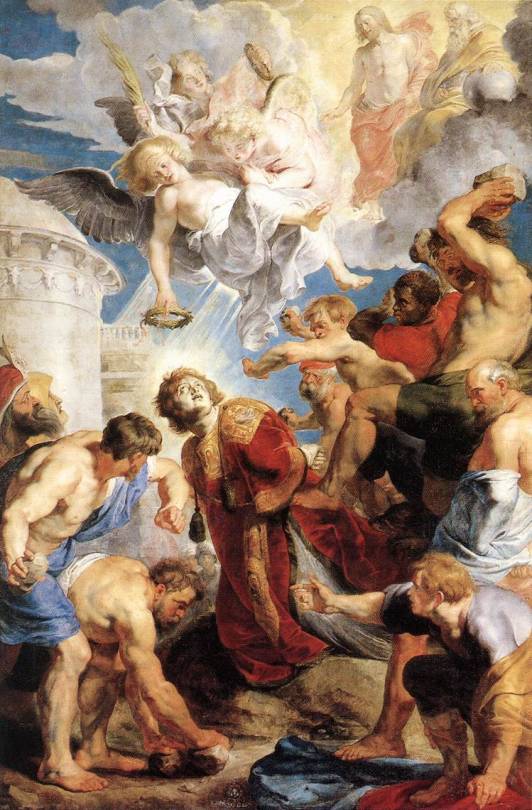#Book of Acts
Text

St. Paul Shipwrecked on Malta, Laurent de La Hyre, 1630
#art#art history#Laurent de La Hyre#religious art#Biblical art#Christian art#Christianity#Book of Acts#St. Paul#Apostle Paul#Baroque#Baroque art#French Baroque#Neoclassicism#French art#17th century art#oil on canvas#Birmingham Museum of Art
39 notes
·
View notes
Text

Late Night Bible Reading 📖✝️❤️
Acts 1:8 “But you shall receive ✨power✨ when the Holy Spirit has come upon you.”
#late night post#late night reading#holy bible#bible study#bible scripture#bible verse#bible#christianity#christian faith#christian blog#christian living#book of acts#holy spirit#power
10 notes
·
View notes
Text

Saul Becomes a Follower of Jesus
1 Saul kept threatening to murder the Lord’s disciples. He went to the chief priest 2 and asked him to write letters of authorization to the synagogue leaders in the city of Damascus. Saul wanted to arrest any man or woman who followed the way ⌞of Christ⌟ and imprison them in Jerusalem.
3 As Saul was coming near the city of Damascus, a light from heaven suddenly flashed around him. 4 He fell to the ground and heard a voice say to him, “Saul! Saul! Why are you persecuting me?”
5 Saul asked, “Who are you, sir?”
The person replied, “I’m Jesus, the one you’re persecuting. 6 Get up! Go into the city, and you’ll be told what you should do.”
7 Meanwhile, the men traveling with him were speechless. They heard the voice but didn’t see anyone.
8 Saul was helped up from the ground. When he opened his eyes, he was blind. So his companions led him into Damascus. 9 For three days he couldn’t see and didn’t eat or drink.
— Acts 9:1-9 | God's Word Translation (GWT)
God's Word Bible Translation Copyright © 1995, 2003, 2013, 2014, 2019, 2020 by God’s Word to the Nations Mission Society. All rights reserved.
Cross References: Genesis 14:15; 1 Samuel 16:3; Psalm 27:12; Isaiah 6:8; Isaiah 17:1; Ezekiel 2:1; Daniel 10:7; John 12:29; Acts 8:3; Acts 9:27; Acts 10:14; Acts 22:6-7; Acts 22:11; Acts 26:14; 2 Corinthians 11:32; Philippians 3:12
#Saul#Damascus road#conversion#Jesus#persecution#blindness#Acts 9:1-9#Book of Acts#New Testament#GWT#God's Word Translation#Holy Bible#God's Word to the Nations Mission Society
16 notes
·
View notes
Photo

Was Christ a common name around the time the Bible was written?
No, because “Christ” is not a name; it is a title. It comes from the Ancient Greek word χριστός (chrīstós), which means “anointed one.” The Greek word comes from the verb χρίω (chrī́ō), which means “to anoint.” The word in Greek is used in the New Testament as a calque of the Hebrew word מָשִׁיחַ (māšîaḥ), which also means “anointed one.” Neither of these words were names; they are both, in fact, titles. Nonetheless, because Jesus is so often referred to in the English-speaking world as “Jesus Christ,” many people have come to incorrectly believe that “Christ” is Jesus’s last name.
Ironically, although Christ was certainly not a common name in Jesus’s time—or even a name at all—Jesus actually was an extremely common name. The name Jesus is an Anglicization of the Latin name Iesus, which is a Latinization of the Greek name Ἰησοῦς (Iēsoûs), which is a Hellenization of Jesus’s original name in Aramaic ישוע (Yēšū́aʿ).
Yēšū́aʿ was an extremely common name for Jewish men in the early first century AD. Indeed, Jesus of Nazareth is not even the only person by that name who is mentioned in the New Testament. Other notable Jesuses mentioned in the New Testament include Jesus Barabbas in the gospels and Jesus Justus in the Book of the Acts of the Apostles.
#kemetic dreams#jesus#book of acts#acts#acts of the apostles#latin#iesus#iesous#yesua#hellenization#aramaic#new testament#christ#hebrew
62 notes
·
View notes
Text
17 “‘In the last days, God says,
I will pour out my Spirit on all people.
Your sons and daughters will prophesy,
your young men will see visions,
your old men will dream dreams.
Acts 2:17, a verse I am thinking a lot about lately. Could also be:
Your children will speak to you with wisdom and will challenge your rulers with justice
Your young people will glimpse at the glory of heaven,
And your old will remain full of hope and will dream new dreams
9 notes
·
View notes
Text

Bible | Acts 4:12
#bible verse#bible scripture#bible#christian mental health#god is real#faith in jesus#jesus#book of acts
3 notes
·
View notes
Text
The Book of the Acts of the Apostles tells us how the faith of the apostle Paul was put to the test after his three missionary trips. Paul had arrived in Jerusalem and while he was in the temple a great disorder occurred for which the authorities decided to arrest him.
Due to the accusations of his enemies, Paul had to give testimony before Felix, the governor, to finally meet King Agrippa who, out of curiosity, had decided to hear his case.
And in front of King Agrippa, the apostle Paul should have shown all his eloquence. Although Paul had Roman citizenship and must appear before the emperor to be tried because he had requested this special right from the governor, his life was in the hands of the authorities, who had already saved him from being assassinated.
Paul said to Agrippa that he was a Jew faithful to the law of Moses, but because of a heavenly vision of the Lord Jesus who asked him why he was persecuting him; he became a fervent Christian, and a propagator and a preacher of the good news, with these words he explained the truth to the King:
"So then, King Agrippa, I was not disobedient to the vision from heaven. First to those in Damascus, then to those in Jerusalem and in all Judea, and then to the Gentiles, I preached that they should repent and turn to God and demonstrate their repentance by their deeds. That is why some Jews seized me in the temple courts and tried to kill me" Acts 26:19-21.
Finally, after this testimony, Paul was taken to Rome, where the Book of Acts tells us that he was able to freely teach the gospel in the capital of the empire.

2 notes
·
View notes
Text

I’m currently reading Acts (a book I haven’t read yet? For some reason?) and I’m noticing that I’m getting A Lot out of it. This is literally after reading the first three chapters. It reminds me of when I studied Roman’s in my old Bible, and this happened.

#christian witch#queer spirituality#trans spirituality#bible verse#bible reading#biblestudy#christopagan#christian mysticism#acts#romans#book of acts#book of romans#Jesus#Christ#faith#tarot#tarot card#the fool reversed#the fool
10 notes
·
View notes
Text

#jesus#bible#scripture#christianity#youversion#bible verse#gospel#bible quote#verse of the day#book of acts#acts#acts of the apostles
2 notes
·
View notes
Text
*On the Banks by Chris Renzema plays*
Me, an intellectual: Wow this is so Peter and John in the beginning of Acts.
#Peter and John: get arrested for the 800th time#me: looks like it’s time to play the theme song#guys it’s such a good song please listen to it and fall in love#i may or may not have cried#bible#acts#the chosen#book of acts#christian music#worship music
2 notes
·
View notes
Text

The Martyrdom of Saint Stephen (from the Saint Stephen Triptych), Peter Paul Rubens, 1616-17
#Eastertide#lectionary#art#art history#Rubens#Peter Paul Rubens#religious art#Biblical art#Christian art#Christianity#Book of Acts#Saint Stephen#Baroque#Baroque art#Flemish Baroque#Flemish art#17th century art#oil on canvas#Musee des Beaux-Arts de Valenciennes
198 notes
·
View notes
Text
Found something interesting in yesterday’s daily readings. Everyone has heard of Lazarus, but there’s another person that was raised from the dead that I really hadn’t heard of. I guess the key difference is that it wasn’t Jesus who performed the miracle, it was Peter. It’s still an amazing story of the Holy Spirit working through people though. Her name is Tabitha (or Dorcas), here’s a bit of her story.
Reading 1 Acts 9:31-42
The Church throughout all Judea, Galilee, and Samaria
was at peace.
She was being built up and walked in the fear of the Lord,
and with the consolation of the Holy Spirit she grew in numbers.
As Peter was passing through every region,
he went down to the holy ones living in Lydda.
There he found a man named Aeneas,
who had been confined to bed for eight years, for he was paralyzed.
Peter said to him,
"Aeneas, Jesus Christ heals you. Get up and make your bed."
He got up at once.
And all the inhabitants of Lydda and Sharon saw him,
and they turned to the Lord.
Now in Joppa there was a disciple named Tabitha
(which translated is Dorcas).
She was completely occupied with good deeds and almsgiving.
Now during those days she fell sick and died,
so after washing her, they laid her out in a room upstairs.
Since Lydda was near Joppa,
the disciples, hearing that Peter was there,
sent two men to him with the request,
"Please come to us without delay."
So Peter got up and went with them.
When he arrived, they took him to the room upstairs
where all the widows came to him weeping
and showing him the tunics and cloaks
that Dorcas had made while she was with them.
Peter sent them all out and knelt down and prayed.
Then he turned to her body and said, "Tabitha, rise up."
She opened her eyes, saw Peter, and sat up.
He gave her his hand and raised her up,
and when he had called the holy ones and the widows,
he presented her alive.
This became known all over Joppa,
and many came to believe in the Lord.
0 notes
Text

A Lame Man Walks
One afternoon Peter and John were going up to the temple at the hour of prayer, the ninth hour. And a man who was lame from birth was being carried to the temple gate called Beautiful, where he was put every day to beg from those entering the temple courts. When he saw Peter and John about to enter, he asked them for money.
Peter looked directly at him, as did John. “Look at us!” said Peter. So the man gave them his attention, expecting to receive something from them. But Peter said, “Silver or gold I do not have, but what I have I give you: In the name of Jesus Christ of Nazareth, get up and walk!”
Taking him by the right hand, Peter helped him up, and at once the man’s feet and ankles were made strong. He sprang to his feet and began to walk. Then he went with them into the temple courts, walking and leaping and praising God.
When all the people saw him walking and praising God, they recognized him as the man who used to sit begging at the Beautiful Gate of the temple, and they were filled with wonder and amazement at what had happened to him.
— Acts 3:1-10 | The Reader's Bible (BRB)
The Reader’s Bible © 2020 by Bible Hub and Berean Bible. All rights Reserved.
Cross References: Psalm 55:17; Isaiah 35:6; Matthew 14:35; Matthew 27:45; Luke 16:20; Luke 22:8; John 9:8; Acts 2:22; Acts 3:11; Acts 3:16; Acts 10:4; Acts 14:9; Acts 14:10; Acts 4:16; Acts 4:21
#Peter#miracle#healing#lame man#temple gate#God#praise#Acts 3:1-10#Book of Acts#New Testament#BRB#The Reader's Bible#Bible Hub#Berean Bible
8 notes
·
View notes
Text
Acts 20:35 AMP
[35] In everything I showed you [by example] that by working hard in this way you must help the weak and remember the words of the Lord Jesus, that He Himself said, ‘It is more blessed [and brings greater joy] to give than to receive.’ ”
~Verse of the Day~ 🙌🏾💜
0 notes
Text
https://fb.watch/rpnlcOcpOz/
#jesus#bible#praise#christian#faith#worship#book of acts#bible study#holy bible#bibletruth#bible reading
1 note
·
View note
Text
God In The Footnotes?
What do we do with the parts of the Bible that seem to have been moved to a footnote? Do we ignore them? Do we excuse them? Or can we use them to point people to the glory of God?
Listen to the podcast of this post by clicking on the player below, and you can also subscribe on Apple, Spotify, or Audible.
https://craigtowens.files.wordpress.com/2024/03/god-in-the-footnotes.mp3
Can we trust our Bibles? There are some things that skeptics point to that we need to be able to defend—even in this model prayer that we have been studying. We come to the last verse of this…

View On WordPress
#1 Chronicles#apologetic#Book of Acts#Calvary Assembly of God#context#doxology#Gospel of John#Gospel of Mark#Gospel of Matthew#inspiration#Josh McDowell#Lord&039;s Prayer#New Testament#Old Testament#quotes#Revelation#sermon#skeptic#video
2 notes
·
View notes